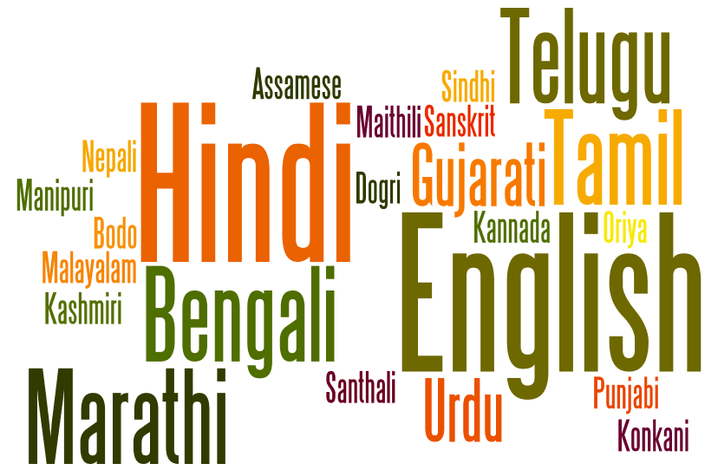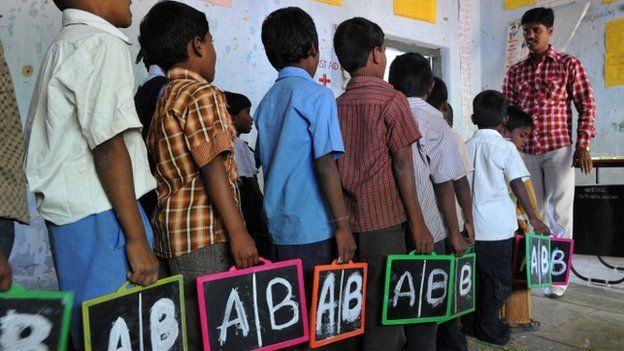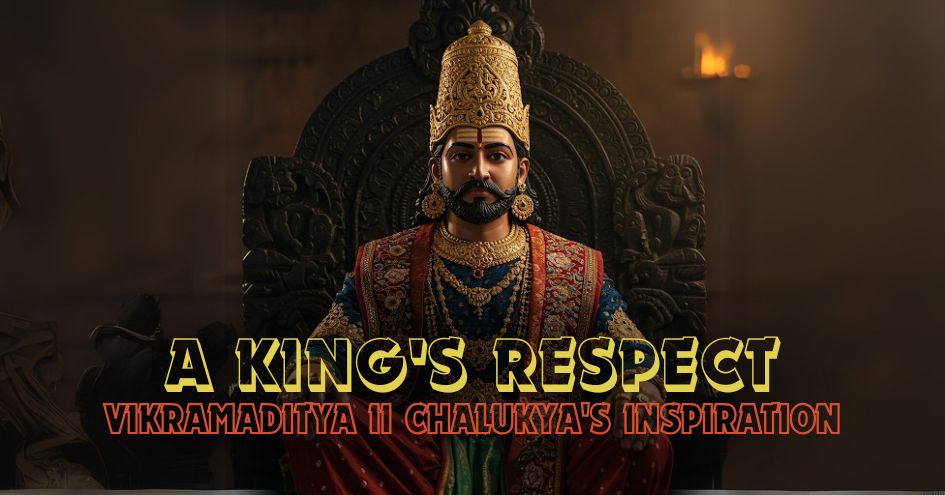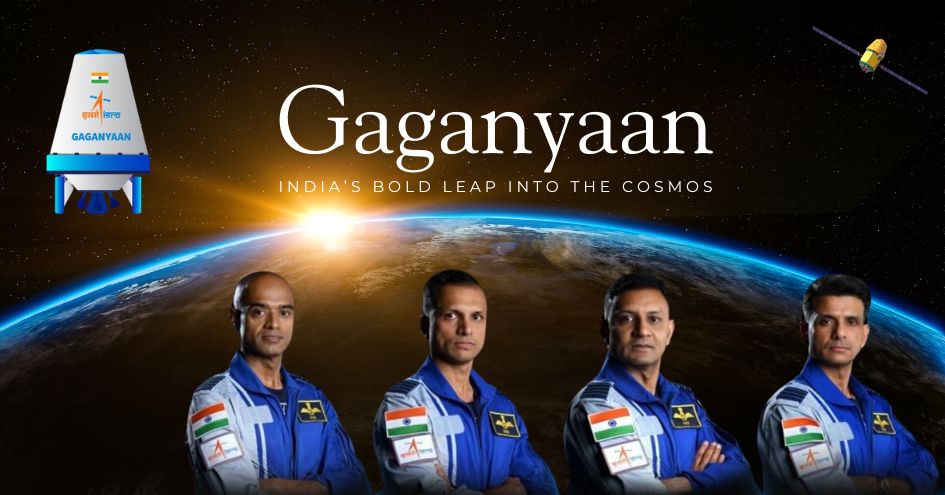In the past couple of weeks, the debate on learning second or third languages other than the mother tongue erupted once again in the mainstream media focusing on Hindi or Sanskrit, although misinterpreting the long legacy issues with vested interests of dynastic regional parties, especially in Tamil Nadu.
We, as a diverse society, are still far from learning and recognizing the fact that many of our founding fathers were multilingual throughout their life and work, which helped them to stretch for freedom struggles covering the length and breadth of the vast country.

We need to inculcate attitude and aptitude among young minds with zeal to further develop, encourage and cultivate India's rich and ancient languages. With the blending of technological revolution, much could be done to bridge the gaps in learning disabilities of a particular language, including Hindi and Sanskrit.
One should have a little passion for learning about the beauty of a language before being judgmental of any aspect of the language or aiming to propagate the lacking in a language. The evolution of a language is a spontaneous order among the diverse community, and one man or a community alone is not responsible for its creation and nurturing of it.
On 2nd September 2022, the Supreme Court declined to entertain a PIL plea for a "declaration to make Sanskrit the national language of India" the PIL was moved by a retired senior bureaucrat of Gujarat. Whether the PIL is good or bad is a different matter, the love and passion for the ancient language must be appreciated for reviving it in the larger interests of the people of India.
While hearing the PIL in Supreme Court, the bench asked the pleader, "How many cities in India speak Sanskrit? Do you speak Sanskrit? Can you recite one line in Sanskrit or at least translate the prayer in your writ petition to Sanskrit." Rather, the honorable court should have asked the right question, how and who had systematically destroyed the beautiful ancient language of India?
It must be a strange situation in a vast subcontinent country like India, where Sanskrit, as the world's ancient classic language, is in death senile for several decades, if not centuries, in modern India.

While addressing the Hindi Vivek Magazine on 16th September 2022, the eloquent Union Finance Minister shared her experience in Tamil Nadu while studying for an undergraduate degree in economics and the sad state of affairs of pity state politics against the students who are interested to learn Sanskrit of Hindi as second or third languages.
She said that for decades and even now, in Tamil Nadu, the anti-Hindi agitations propagandas are played for pity politics indoctrinating young school and college students. She shared that in her college days, the students who chose either Sanskrit or Hindi as a second language would not get state government scholarships despite their names being on the merit lists of their respective universities.
On 29th September 2022, while speaking at the "Karnataka Samskrit University," on the occasion of Pre-graduate Convocation and "Sanskrit Week Celebration," she said that in her school and college days, learning Sanskrit was not easy at all because of the "political environment in which we lived." She further said, "and it's not as if I lived in a foreign country. I lived in Tamil Nadu. Sanskrit was discouraged, and I think even today they discourage,". She also said that "learning Sanskrit or learning Hindi was not encouraged at all (in Tamil Nadu).."
It would be interesting to remember the beautiful slim book titled "Sanskrit Proverbs" by Champak C Shah, published in 1923. The book is a collection of hundreds of beautiful rarest Sanskrit proverbs in English, which covers the entire human lifecycles of ups and downs, all possible situations of pleasures, pains, etc., embedded in nature, community, harmonious living, cultural ethos, and antiquities, governance, leadership, etc.
Each proverb has multiple perspectives which are quite enthralling to relate to practical life in all sections of society: as an individual, family, community, and society as a whole. The following proverbs on nature, people, learning, governance, leadership qualities, etc., are quite enlightening from the generic of our ancient language.
On nature, country, and people:
"Mountains-are beautiful at a distance, rugged when near."
"The ocean is the course of rivers."
"Perseverance, daring, courage, wisdom, strength, and valor—where these six are, there is God."
"A fool is honored in his own house; a proprietor is honored in his own village; a king is honored in his own country; a learned man is honored everywhere."
"You should forsake a man for the sake of your family; you should forsake your family for the sake of your village; you should forsake your village for the sake of your country; you should forsake the earth for the sake of yourself."
"In sandal trees, there are serpents. In the waters with lotuses, there are also alligators. There are no unobstructed pleasures."
"The rivers themselves drink not (their) water, nor do the trees eat (their own) sweet fruit; the clouds eat not the crops—the riches of the good are (employed) for the benefit of others."
"The soul is a river, whose holy confluence is self-restraint, whose water is truth, whose bank is morality, whose waves are compassion. Here perform ablutions, 0 son of Pandu! The inward soul is not purified by water".
On India's ancient traditions and values:
"What will the Shastra do for him who has no sense of his own? What will a mirror do for him who has lost his eyes?"
"There is no village—how can there be a boundary? There is no learning—how can there be fame? There is no wisdom—-how can there be salvation? There is no faith—how can there be understanding?"
"The strength of men is rooted in food."
"Fasting is the best medicine."
"Bodies are transitory, and riches are not lasting; death is always at hand; (there¬ fore) virtue should be practiced."
"An unguarded object remains safe if protected by destiny; stricken by destiny, it perishes though well guarded. One life, though abandoned in a wood without a protector; one lives not in a house, though precaution is taken."
"One lump of clay (is molded) into vessels of many forms, one lump of gold (is made) into ornaments of many shapes; (all) cow-milk is one though yielded by many cows; so, the one Supreme soul resides in many bodies."
"It is not the fault of the spring that the leafless tree does not produce leaves; it is not the fault of the sun that the owl cannot see by day; it is not the fault of the raincloud that the drops do not fall into the cuckoo's mouth. Who shall reverse that which fate has written on the forehead of each?"
"When the goddess of wealth came, it was like the water in a coconut; when she departed, it was like the wood apple eaten by an elephant."
"No relative is equal to learning; no enemy is equal to disease; no affection is equal to that for a child; there is no Dower greater than that of Fate."
On leadership and community with peaceful living
"Servitude is the lowest occupation."
"The observance of ordinances is the first duty."
"He who looks upon all living beings as upon himself sees."
"The heart of the wise is soft as a lotus flower in prosperity, but in adversity, it is as firm as a mountain rock."
"The tree that is cut down grows again; the moon that wanes after a time waxes again. Thus, do wise men reflect and, though distressed, are not overwhelmed."
"Liberality, the sweetness of speech, courage, judgment, these four natural qualities are not attained by practice."
"Even if the sun should rise in the west, even if the lotus should bloom on the peaks of the mountains, even if Meru should shake, even if a fire should feel cold—the words of the goodwill surely never fail."
"The voice is the beauty of cuckoos; chastity is the beauty of women; learning is the beauty of the deformed; patience is the beauty of ascetics."
"By wise people, an appropriate observation is accepted even from a child. On the invisibility of the sun, is not the light of a lamp availed of?"
"A king should not tolerate even his children breaking his commands; else, what difference is there between a king and the picture of a king."
"The virtuous man appreciates virtue, the bad man appreciates it not; the strong man, and not the feeble, understands strength; the cuckoo, and not the crow, feels the influence of the spring; the elephant, and not the mouse, justly values the strength of the lion."
On Money, Science, and Business
"Man is the slave of money."
"A man should abandon that country, and wherein there is neither respect, nor employment, nor connections, nor the advancement of science."
"In eating and in business, he who discards modesty will be best off."
"Giving, consuming, and loss are the three ways by which wealth is diminished. The man who neither gives nor spends has vet the third was open to him."
"A fool too may shine in the assembly, dressed in fine garments; he shineth no longer, however, than he holdeth his tongue."
"Day and night, evening and morning, winter and spring, come again and again; time sports, life goes, but nevertheless the chain of desire loosens not."
"Fortitude in misfortune, forbearance in prosperity, eloquence in the assembly, valor in battle, eagerness in (seeking) fame, attention in the Vedas—these are natural to a great man."
It would be delightful to read the above proverbs in the Sanskrit language itself if the Sanskrit language is taught to young children in schools and youth in colleges and universities to develop added skills for those who show interest.
Undoubtedly, the above proverbs are great examples because one should not blindly oppose any language for narrow and vested interests of any type.
Alas, the current discourse on learning Sanskrit or Hindi as the second or third language in a state like Tamil Nadu is defied of the truths and ethics based on logical and reasoned debate for the betterment of society and humanity.
B Chandrasekaran is an economic historian interested in studying the history of language politics in India from classical liberal perspectives.
NEXT ARTICLE

Indian History is rife with conflict between kings for power, territory and regional supremacy. We have seen instances where kings have made it a poin...

"Saare Jahaan Se Accha, Hindustan Hamara!"These immortal words, spoken by Squadron Leader Rakesh Sharma from the vast expanse of space in 1984, When t...

High in the rugged, unforgiving terrain of Jammu and Kashmir’s Reasi district, where the Chenab River slices through deep gorges and the Himalayas loo...